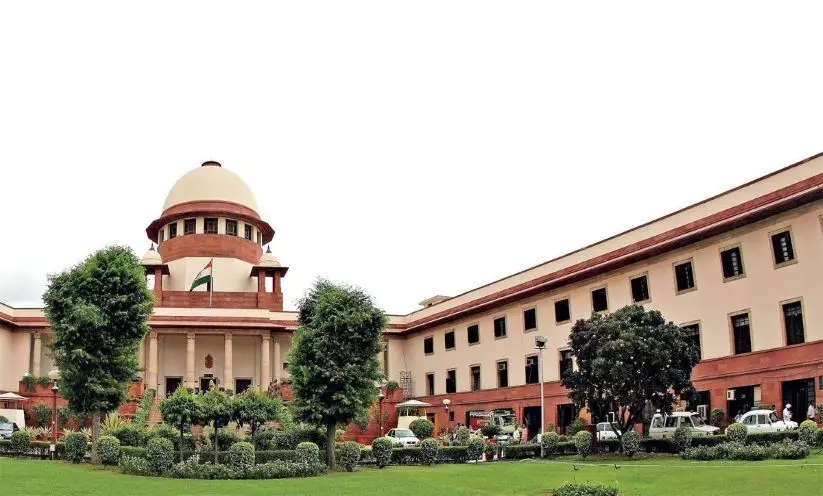
Won't sit with folded hands, SC questions Centre on demonetisation
text_fieldsNew Delhi: During the hearing of petitions challenging Centre's demonetisation move in 2016, The Supreme Court on Tuesday said that it cannot fold its hands and sit because it is an economic policy.
Justice Nagarathna, one of the five-member bench considering the petition, made the observation when the Reserve Bank of India's lawyer Jaideep Gupta pointed out that there is no challenge to the decision on constitutional grounds, and as it is an economic policy measure judicial review cannot be applied.
"Just because it is an economic policy, the court cannot fold its hands and sit. Merits of the decision, it is for the government to decide in its wisdom as it knows what is best for the people. But we can always examine the manner in which it is taken," said Justice Nagarathna.
In a report submitted before a five-judge of bench justices Abdul Nazeer, B.R. Gavai, A.S. Bopanna, V. Ramasubramanian and B.V. Nagarathna, Reserve Bank of India's lawyer Gupta has stated that the policy was intended to curb black money and fake currencies and not a single bank suffered losses from the policy.
Justice Nagarathna said the court will not go into the merits of the decision to implement demonetisation, but it can always go into the manner it was taken, and the two things are totally different.
Senior advocate P. Chidambaram, representing a petitioner, said the government should confidently defend the decision and also the decision-making process, adding that it should place those documents before the court.
He said if the government was to adopt a route through the Parliament on this count, the Parliamentarians would have stopped the policy, but it did not follow the legislative route.
During the hearing, the apex court also inquired into the number of members present in the RBI's Central Board meeting, which decided to make the recommendation regarding demonetisation in 2016 as according to the RBI Act, RBI's Central Board has to make a recommendation to the Centre regarding demonetisation of notes or for any series of bank notes of any denomination to cease to be legal tender.
Asking RBI to submit the details regarding the quorum, the bench said, "How many members were present? There should be no difficulty in telling us."
Gupta contended that the process under the RBI Act to make a recommendation to the Centre was followed, and the prescribed quorum was met and agreed to provide the necessary information.
In the daylong hearing, the RBI's counsel informed the bench that ample opportunities were given to people to exchange their notes.
-IANS Inputs























